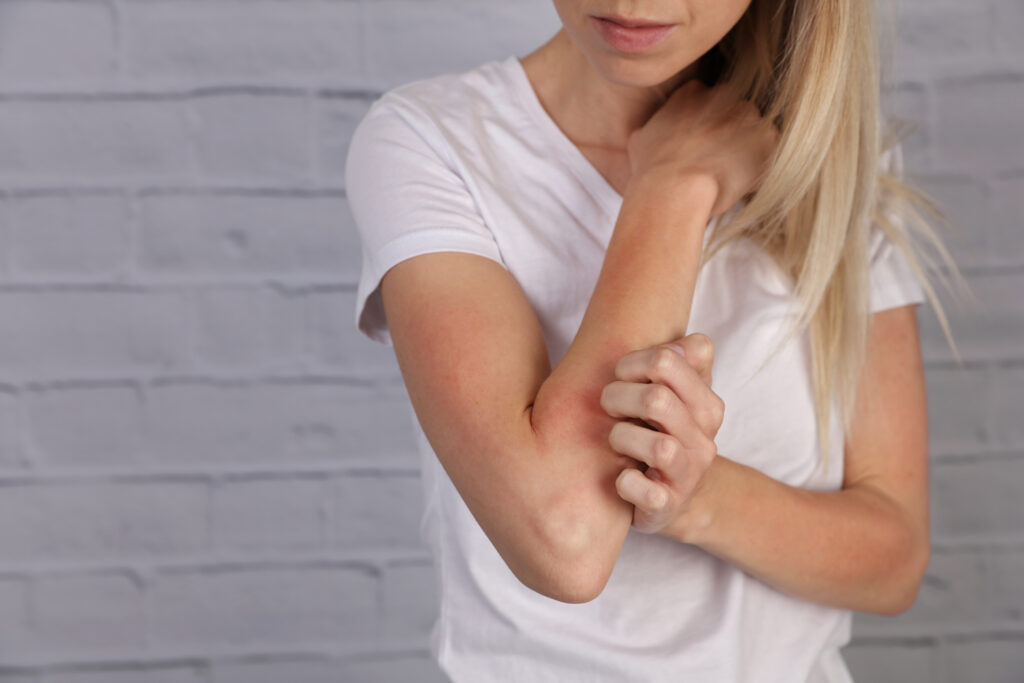
Eczema is a common condition that causes itchy, dry and red patches on the skin. There are various treatments available for eczema, including moisturizers, anti-inflammatory creams, corticosteroids and light therapy - speak to your provider to identify which one would work best.
Moisturizers
Utilizing moisturizers correctly and regularly can help protect dry skin from becoming itchy or flare-ups, with regular applications after bathing as the most effective strategy. Choose an emollient moisturizer and apply it daily, just before bedtime.
Emollients that provide maximum skin hydration include ingredients to prevent transepidermal water loss (TEWL). Such ingredients include glycerin, ceramides, fatty acids and humectants such as urea or lactic acid as an effective defense.
Moisturizers provide additional protection from environmental irritants while simultaneously helping rehydrate skin cells and ease itching - an invaluable remedy when treating eczema.
Some moisturisers contain antioxidant-rich Vitamin C for protection from free radical damage; other moisturisers feature menthol as an anti-itch agent.
Anti-inflammatory creams
Eczema can be managed through various treatments, including medication, moisturizers and at-home skin care routines. Your physician may advise a combination of these to effectively address it.
Anti-inflammatory creams can provide effective relief, reduce itching and speed up healing. Available both over-the-counter and with valid valid prescription, anti-inflammatory products come in various strengths to meet various needs.
These treatments can alleviate the itching and inflammation associated with eczema while also decreasing risk for infections or any unwanted side effects.
An additional promising approach involves using certain "good" bacteria to combat "bad" ones that cause itching and inflammation in people living with eczema. According to researchers, using Roseomonas mucosa (commonly found on healthy skin) spray can significantly alleviate symptoms in two-thirds of those suffering from the condition.
Other medications for eczema include topical corticosteroid creams and ointments that range in strength from mild over-the-counter products to stronger prescription medicines, helping alleviate itching and inflammation while treating infantile, atopic, and psoriatic forms of eczema effectively.
Corticosteroids
Corticosteroids are medications designed to suppress your immune system and decrease inflammation, helping control eczema symptoms while decreasing itching.
Drugs used to treat inflammation include anti-inflammatories such as corticosteroids can also help treat other conditions, including lupus and organ transplants; however, prolonged use may result in serious side effects.
Corticosteroids come in many varieties depending on your condition; oral versions, inhalers or injectable versions as well as creams or ointments may all be available.
Light therapy
Light therapy is an approach to treatment that involves exposure to natural or artificial lighting sources - including fluorescent, halogen or LED bulbs and sunlight.
Light therapy typically includes phototherapy boxes that emit full spectrum lighting similar to that found in natural daylight and the use of ultraviolet (UV) rays by dermatologists to treat conditions like psoriasis and eczema.
Phototherapy may offer some relief for people suffering from eczema after just one session; however, most require multiple sessions before realizing significant improvement. It doesn't work for everyone though so it is wise to consult your physician if considering phototherapy as a possible treatment option for eczema.
If you want to try light therapy, make sure that any device you purchase filters out UVA and UVB rays. Also make sure that you use it properly so as to not overexpose skin or eyes with unnecessary exposure. Speak to your physician if you have bipolar disorder as light therapy could trigger episodes of manic or hypomanic episodes in those who are depressed.





